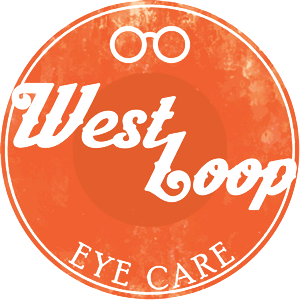What You Need to Know about Chronic Dry Eyes
Suffering from dry eyes can be unbearable, especially if you have chronic symptoms that don’t seem to go away. If you are experiencing redness, itching, light sensitivity, a gritty feeling, or other dry eye symptoms, then it is time to talk to an experienced eye doctor in Chicago to explore treatment options.
Tears Lubricate for Protection
Tears are important to protect your eyes from potential threats, such as dust, debris, microorganisms, and more. These tears have the perfect balance of three important compounds:
- Water, to moisturize the eyes
- Oil, to lubricate the eyes
- Mucus, to spread the tears evenly
If you are experiencing symptoms of dry eyes, then it could mean that you don’t have the right balance of these components. Or, it is possible that your tear system isn’t producing enough fluid to keep the eyes lubricated.
Environmental factors could be drying your eyes, such as the heater, air conditioner, or fans in the room. Additionally, the eyes tend to dry out with age, hormonal changes, medication use, and other diseases that affect tear production.
Treatment Options for Dry Eyes
Visiting a Chicago optometrist is always the best solution when you are identifying the right treatment for your dry eye problem. We’ll start with the least-invasive options first, then move to other treatments as needed. This treatment plan is always catered to the needs of each patient. At West Loop Eye Care, we care about your eye health. Our team is working hard to ensure optimal results from your treatment plan.
Here are a few treatments that might be used to reduce the symptoms of dry eyes and improve the comfort of your eyes:
- Artificial Tears: You can find over the counter eye drops that help to lubricate the surface of the eye. Or, there are times when prescription drops might be required. Keep in mind that there isn’t one product that works for every person. So, you might need to test a few different options before finding the artificial tears that work best for you. These drops are placed in the eyes on an as-needed basis during the day.
- Eye Ointment: Do you find that your eyes dry out while you are sleeping? Then, the artificial tears won’t be enough to keep the moisture on your eyes throughout the night. You might need to use a thicker product, such as an ointment to add a layer of protection before going to sleep.
- Oral Medications: Certain medications can be taken orally to stimulate the production of tears. This treatment is only considered if the topical treatments are not effective.
- Drain Duct Treatment: A temporary punctal occlusion is a treatment that might be used to manage how the tears are draining through the ducts. A temporary plug can be added to close the duct where the tears usually drain. If this treatment works well, then permanent plugs might be used after the temporary plugs dissolve. Another option is to use a heated tool that burns the duct shut, resulting in a small amount of scar tissue that blocks the drainpipe.
- Underlying Cause: It is also important to consider the underlying cause of dry eyes. For example, if you are using a medication that dries out the eyes, then you might be able to change medications to eliminate this side effect.
If you have chronic dry eyes, then it is time to talk to your eye doctor about treatment options. Call us at West Loop Eye Care to learn more about the treatments that are available. We also have an online booking form that can be used to schedule an appointment.
Dry Eye Symptoms: When to Talk to an Eye Doctor
When the tears can’t adequately hydrate the eyes, then it is known as dry eye syndrome. While some of the dry eye symptoms seem straightforward, you might be surprised to learn about other symptoms that seem unrelated to the condition. The best thing that you can do is learn about this eye problem, then talk to an experienced Chicago optometrist to determine the right treatment options.
Common Dry Eye Symptoms
Here are some of the most common symptoms that occur when someone is suffering from dry eye syndrome:
- Burning sensation in the eyes
- Stinging sensation in the eyes
- Scratchy sensation in the eyes
- Light sensitivity
- Redness in the white areas
- Feeling like you always have something caught in the eye
- Discomfort or inability to wear contact lenses
- Difficulty when driving at night
- Eye fatigue
- Blurred vision
- Watery eyes or excess tears
The last symptom is the biggest surprise to people who aren’t familiar with this eye condition. How can you be suffering from dry eyes when you have excess tears and constant watering of the eyes? The dryness of the surface of the eyes could cause the tear ducts to be over-stimulated. This protective mechanism results in excess fluid to add more moisture to the eyes. But, the “reflex tearing” don’t remain on the eye very long, causing the eyes to dry out again… which leads to an overproduction of tears. This cycle can be corrected by treating the dry eye problem.
Why Dry Eye Syndrome Shouldn’t Be Ignored
When you are experiencing insufficient lubrication on the surface of the eye, the initial symptoms are uncomfortable. But, ongoing eye irritation can lead to chronic inflammation, which eventually scars the front surface of the eyes.
Keep in mind that tears have a purpose in protecting your eyes. The moisture keeps the eyeballs lubricated. Additionally, tears are needed to wash the surface of the eye so that dirt, debris, and other unwanted objects are washed away before the cornea is damaged.
Do You Need to Talk to an Eye Doctor?
If you are experiencing the symptoms listed above, then it could mean that your eyes aren’t producing enough tears for the lubrication that is needed. Or, another possibility is that you are experiencing poor-quality tear film. Tears should have three components: a lipid (oily) component, an aqueous (water) component, and a mucin (mucous-like) component. If these components are off-balance, then the tear film might evaporate too quickly, which reduces lubrication on the surface of the eye. This problem could be caused by issues in the tear glands located in or near the eyes. These glands are designed to produce the tears; then the lubrication is spread across the surface of the eyes when you blink.
So, how do you know when you need to talk to a doctor about your dry eyes? If you find that the above symptoms are chronic, then it is important to consult with an experienced optometrist to identify the best treatment options. Call us at West Loop Eye Care or use our online booking system to schedule an appointment. We can help you identify a diagnosis and to learn more about the treatments that are offered.


